Compare Power Companies in New Zealand at Canstar Blue. Electric Kiwi, Powershop, Nova Energy, Globug, Meridian Energy, Genesis Energy, Mercury, Contact and Pulse Energy were compared on Overall Satisfaction, Bill & Cost Clarity, Customer Service, Ease of Sign-up, Online Tools & Advice and Value for Money.
See our Ratings Methodology.
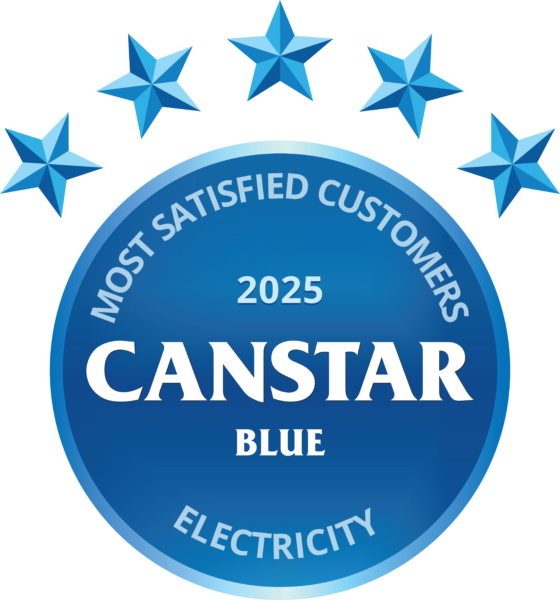
Electric Kiwi is switched on to Kiwi power consumers, who rate the power company No.1 for customer satisfaction.
Our review compares electricity providers on customer satisfaction, so you can discover what other Kiwis think about our compared electricity companies before you sign on with one of them. Think of it like asking hundreds of your closest friends and family which electricity provider they think is best!
Canstar Blue surveyed 3654 Kiwis who have an account with an electricity company and asked for their feedback on their power provider.
Respondents rate their satisfaction with their providers from zero to ten, where zero is extremely dissatisfied and ten is extremely satisfied. Brand satisfaction was rated by respondents on the following criteria:
The winning brand is the one that receives the highest Overall Satisfaction rating once all the scores from the Overall Satisfaction criteria are combined and averaged.
Brands must have received at least 30 responses to be included, so not all brands available in the market have been compared in this survey. The brands rated in this survey are listed below in order of best overall satisfaction.
Find more information on our Most Satisfied Customer methodology.
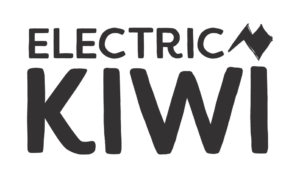
This is the fourth time that Electric Kiwi has won our power provider award, and it continues its record of strong performances by earning four top 5-Star ratings, and two great 4-Star ratings. It’s also the only provider on our table to earn 5 Stars for Customer Service.
It’s worth noting that Electric Kiwi is the winner of Canstar Blue’s 2025 Bundled Utilities Award, for its great broadband + power deals. You can read more about our Bundled Utilities Award here.
Electric Kiwi offers three power plans, each includes one free Hour of Power every day and no contract, so you’re free to change providers whenever you want.
Customers can also add one of Electric Kiwi’s three broadband plans. Electric Kiwi also offers great value mobile phone plans.
![]()
Sitting second on our table, behind our joint winners, Powershop achieves a strong set of satisfaction ratings across all our award categories. Powershop’s customers award it 5 Stars for its Online Tools & Advice, and great 4-Star ratings across all other categories.
Powershop works differently from other electricity companies, which explains its great rating for Online Tools & Advice, which are central to its unique power offerings.
For in addition to allowing you to pay for your power each month like a regular power company, Powershop also has a prepay option, via a range of power packs that are available through the Powershop website and app. Many of the prepaid packs come with discounts. Packs on offer include:
Staying Power: A super-discounted special pack that is available once a month. The Staying Power discount starts at 20% in your first year, then increases by 1% each year you stay with Powershop, to a maximum of 25%.
Regular Specials: Available for a limited time each month. The Staying Power and the limited-time specials together contribute to your Special Rates.
Future Packs: Allow you to squirrel away power for future use. The further out you buy Future Packs, the bigger the discount. Buy six months ahead to save the maximum 10% against your Standard Rate for the month.
Fixed-price Value Packs: Smallest discounts of the special packs, but come in a range of sizes.
Standard Power Top-up Packs: Power priced at your standard rate.

Rating third for Overall Satisfaction, Nova Energy achieves a clean sweep of strong 4-Star ratings across all our award categories.
Nova Energy is part of the Todd Corporation, which also operates its own geothermal and natural gas generators. Nova Energy offers electricity, broadband, mobile and gas, plus a range of discounts for bundled utilities. It has three basic plan structures:
![]()
Globug earns 4 Stars for Overall Satisfaction, receiving a score that places it fourth on our table. However, apart from our joint winners, Globug is the only other electricity brand to earn multiple top 5-Star Ratings, which it achieves for Bill & Cost Clarity and Ease of Sign-up.
A retail brand of Mercury, Globug is a prepaid power retailer. Globug offers simple pricing, with a fixed daily charge and a variable kWh charge. Plus, because it’s a prepaid provider, there are no contracts, bonds or credit checks involved. Consumers can check Globug’s pricing for standard user and low user plans via its website.

While Meridan’s brand Powershop earns a fantastic set of ratings from its customer, Meridian scores less highly. However, like Powershop, Meridian earns a 4-Star rating for Overall Satisfaction, a rating it repeats across another three of our six ratings categories.
The NZ government is the major shareholder in Meridian, which is one of the country’s biggest power generators and retailers. All of Meridian’s power is derived from 100% renewable energy sources. It has the following plans:
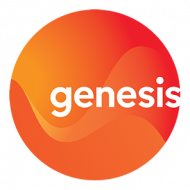
Like Mercury, Genesis is a major gentailer of electricity that is 51% owned by the government. In this year’s award ratings, it earns predominantly 4-Star ratings, including for Customer Satisfaction and Overall Satisfaction.
Genesis offers three residential energy plans, and a 5% discount for bundling electricity and gas (bottled or piped):

Mercury is one of the highest profile power companies in the market. It earns predominantly 4-Star ratings, plus two 3-Star scores, for Ease of Sign-up and Value for Money.
Mercury is 51% owned by the government and its generation comprises 100% renewable hydro and geothermal. Its plans break down into two bands:
Mercury offers a range of fibre and wireless broadband plans that can be bundled with electricity services for discounts and Samsung appliance offers, as well as multi-fuel and mobile phone bundle discounts.

Contact earns its highest ratings, 4 Stars, for Overall Satisfaction and Online Tools & Advice. Across the other categories on our award table it receives 3-Star ratings from its customers.
Contact has a 25-year history built on a largely renewable portfolio of electricity generation assets. It owns and operates 11 power stations, and produces 80-85% of its electricity from renewable hydro and geothermal stations.
In addition to its broadband and gas bundles, it offers the following electricity plans:

Pulse Energy is a smaller, community-owned energy company. It earns 3-Star ratings across all award categories. While 3 Stars is not a top rating, it’s by no means a measure of dissatisfaction. Instead, it shows that Pulse’s customers are happy with the levels of service and support they receive.
Pulse Energy supplies electricity, gas, solar and broadband services to households and businesses throughout NZ.
Pulse offers:

Not all electricity providers in the market qualify for our ratings (based on minimum survey sample size), but that doesn’t mean they’re not worth considering. Here is another electricity provider to check out before making a decision:

Founded in 2015, Octopus Energy is a global power company. Based in London, it has operations in nine countries, including across Europe, America, Australia and, since 2022, in certain parts of Aotearoa. Octopus’ plans offer peak, off-peak and night rates for standard and low users, plus competitive solar buyback rates.
Electricity, whichever company you purchase it from, does the same job. The only real difference in supply is the cost. So it’s no surprise that Value for Money is the biggest driver of satisfaction for Kiwi energy consumers: cited by a third (33%) of those in our survey.
And just as there are different levels of value for money delivered by retailers, there are also big differences in the customer service on offer, which is the second most important factor for consumers, cited by a quarter (24%) of respondents.
Overall, here’s what the consumers in our survey say are their most important considerations when rating their electricity providers:

Aside from using less power by, for example, purchasing more energy efficient appliances, there are three easy steps you can take to further reduce your power bill:
Whether you’re a low or standard user affects your power plan and how much you are charged for the energy your household consumes. This is because a power bill is made up of two key charges:
And the way these charges are implemented varies depending on whether you are a standard or a low user:
A standard user consumes relatively high amounts of electricity each month. As a result, power companies offer competitive variable usage rates. To balance this, they charge a higher fixed-rate daily charge.
Low users pay a much lower fixed-rate daily charge, but higher prices for the power they use. This means that their fixed costs are much lower than those of a standard user. As long as they don’t use much power, their bills will be lower.
However, because most Kiwi homes are now low users, the low-user electricity tariff is being phased out. As a consequence, if you’re on the low-user tariff, your power bills will have already started to rise.
This is because for each year of the five-year phase-out, from 2022-27, power companies are able to increase their daily charges for low-users by around 30c, until they are on a par with standard-user charges. However, electricity companies are increasing their charges at different rates.
Of course, you need to balance the per kWh charge of each power plan when comparing the savings you can make from shopping around for the lowest daily charge, but there are big savings to be made.
Many power providers have off-peak power deals, offering cut-price or even free electricity. Off-peak times differ between plans and providers but, generally speaking, peak times are Monday to Friday, 7am-11am and 5pm-9pm. For example, here is an example of the different standard rates offered in Auckland by one electricity retailer (prices correct as of 18/06/25):
As you can see, if you use most of your electricity outside of peak times – or can easily move most of your power consumption to off-peak – there are big savings to be made.
NZ’s energy market is dominated by four big gentailers that generate electricity and sell it through their retail businesses:
However there are other smaller players, as listed above. To find the best deal, you’ll need to spend a few minutes researching prices on their websites. Plus, of course, refer to our customer research and awards into New Zealand’s best-loved power companies.
A kWh stands for KiloWatt Hour, which is a unit of energy that measures how much electricity your home uses. Kilo means 1000, Watt is a measure of power and H stands for hour. Appliances are often described in terms of their wattage, that is, the power they require to run.
If you run a 1000W (1kW) appliance for one hour, then it will use 1kWh of electricity. If you run a 5kW air conditioner for one hour, then that will use 5kWh of electricity. One 100W light bulb, on the other hand, would take 10 hours to use 1kWh.
Your home’s electricity usage (in kWh) is recorded by your electricity meter and passed on to your retailer for billing. So, for example, if you’re paying the national average of 34.25c per kWh to run a 1000kW heater for one hour on its max setting it will cost you 34.25c.
If you haven’t got a smart meter, your energy company may estimate your usage between physical readings.
It’s common for people to confuse kW and kWh. The difference is that kW is a measurement of power, while a kWh is a measurement of energy. That might sound nit-picky, but it’s an important distinction.
For example, a 4kW solar panel system has a maximum power output of 4kW. If that output is sustained over an hour, then the solar system will produce 4kWh of electricity. If it maintains that output for four hours, then the system will produce 16kWh.
So if you are considering a solar system and want it to cover half of your home’s electricity usage (say, 10kWh), then you don’t need a 10kW solar system, rather, you should only need a 2-3kW system – subject to the weather. Another way to think about this is to imagine kW as speed and kWh as distance. The higher the speed (kW), the greater the distance you will cover (kWh).
Lines charges
Lines charges cover the cost of delivering power to your home. They differ depending on where you live, due to the following reasons:
As of June 2025, nationally, the average line charge per kWh is 12.72c per kWh, but prices ranging from 8.49c to over 20.51c per kWh.
Usage charges
These are the costs for each kWh of electricity a household consumes. Like lines charges they vary, depending on location.
As of June 2026, nationally, the average power price per kWh is 22.95c per kWh, but prices range from 21.35c to over 27.74c per kWh.
There are two electricity user tariffs in New Zealand:
Low users pay a lower fixed-rate daily charge, but higher prices for the power they use. However, because most Kiwi homes are now low users, the low-user electricity tariff is being phased out.
As a consequence, if you’re on the low-user tariff, your power bills will have already started to rise. For more on the end of the low-user tariff, click here.
Peak and off-peak electricity times refer to separate usage rates that are charged for different times of the day. A flexible pricing tariff means customers are charged three separate electricity usage rates for either ‘peak’, ‘off-peak’ or ‘shoulder’ periods.
Last year, the average Kiwi household used 7084kWh of electricity at 34.25c per kWh, for a total cost of $2426. This works out to roughly $202 per month. However, retail electricity prices vary region to region, and depend on the cost of the power itself and infrastructure costs. Because of regional differences, for example, residents in Westport and Kerikeri face average power bills that are around 42% higher than those of people living in Christchurch.

Bruce Pitchers is Canstar NZ’s Content Manager. An experienced finance reporter, he has three decades’ experience as a journalist and has worked for major media companies in Australia, the UK and NZ, including ACP, Are Media, Bauer Media Group, Fairfax, Pacific Magazines, News Corp and TVNZ. As a freelancer, he has worked for The Australian Financial Review, the NZ Financial Markets Authority and major banks and investment companies on both sides of the Tasman.
In his role at Canstar, he has been a regular commentator in the NZ media, including on the Driven, Stuff and One Roof websites, the NZ Herald, Radio NZ, and Newstalk ZB.
Away from Canstar, Bruce creates puzzles for magazines and newspapers, including Woman’s Day and New Idea. He is also the co-author of the murder-mystery book 5 Minute Murder.
Actively practise energy savings to reduce power bills: 67%
Rug up inside during winter rather than turn up heat: 48%
Worry about size of electricity bills: 46%
Use provider’s online tools to track energy usage: 44%
Energy efficiency is key factor in appliance purchases: 38%
Compared electricity prices over the past 12 months: 40%
Moved appliance usage to make use of cheaper/free power: 22%
Switched electricity providers in past 12 months: 11%
Canstar Blue surveyed 5037 New Zealand consumers across a range of categories to measure and track customer satisfaction, via ISO 26362 accredited research panels managed by PureProfile. The outcomes reported are the results from respondents who pay bills on an electricity account. In this case, 3654 New Zealanders. Brands must have received at least 30 responses to be included. Results are comparative and it should be noted that brands receiving three stars have still achieved a satisfaction measure of at least six out of 10. Not all brands available in the market have been compared in this survey. The ratings table is first sorted by star ratings and then by mean overall satisfaction. A rated brand may receive a ‘N/A’ (Not Applicable) rating if it does not receive the minimum number of responses for that criterion.
The past winners of Canstar’s Electricity Awards:

Best-Rated Bottled Gas Suppliers - November 3rd
Below we cover the best deals from power providers across electricity and gas. The one we think delivers the best value is our Deal of the Month!
Deal of the Month: Mercury
Of all the power companies, …
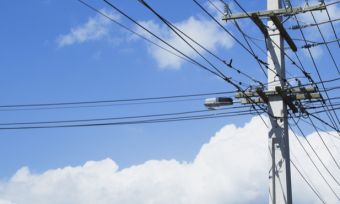
Best-rated Electricity Providers - October 15th
What is Octopus Energy
Founded in 2015, Octopus Energy is a global power company. Based in London, it has operations in nine countries, including across Europe, America, Australia and parts of Aotearoa.
In addition to being an …
– Read more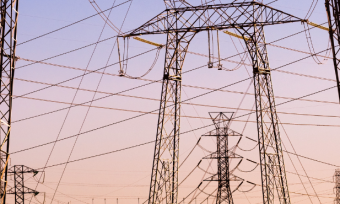
Best-rated Electricity Providers - October 9th
The New Zealand electricity market may have become more diverse in recent years. However, the large power companies still collectively command a strong customer share.
How is the electricity sector structured and, what is a gentailer?
Getting …

Best-rated Electricity Providers - October 9th
If you have lots of appliances running during the night, it could pay to switch to a night time electricity tariff.
– Read more
Best-Rated Bundled Utilities - October 9th
Installing solar panels isn’t just about going green and saving on your power bill, they can also be a way to make money by selling excess energy back to the grid, commonly know as buy-back.
So, …
– Read more